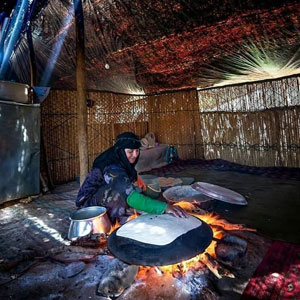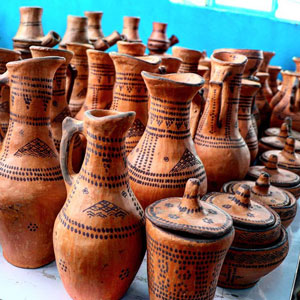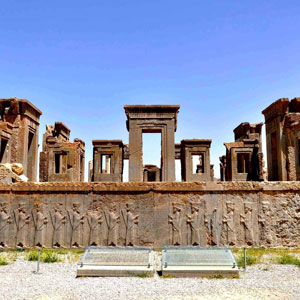 Signin with Google
Signin with Google Signin with Facebook
Signin with Facebook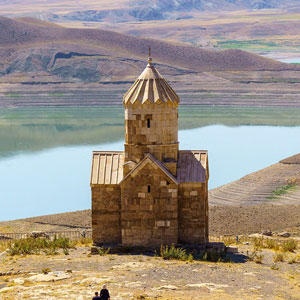 Places
PlacesSa'd al-Saltaneh, the Largest Indoor Caravanserai in the World
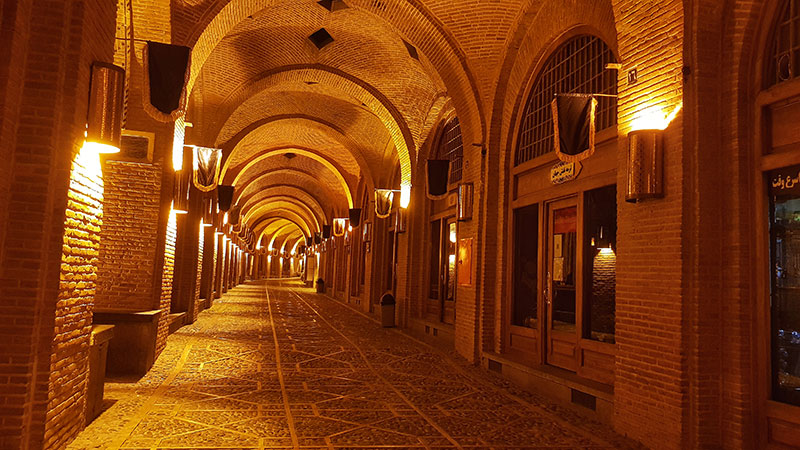
Once the capital of Iran during the Safavid era, Qazvin a beautiful city full of wonders possesses 1300 National Heritages that place it in the first rank of 31 provinces of Iran. Famed for great caravanserais, exquisite art crafts, delicate hand-woven carpets, and tasteful eating options, Qazvin was a prominent trading centre on the Silk Road, the old trading route.
The largest indoor Caravanserai in Iran
Caravanserais were roadside inns for travellers to rest or stay for a couple of days and recover from their long journeys. They were built along roads, near the city entrance gates, or in the cities. One of the best-preserved samples of the urban caravanserais of the world is Sa'd al-Saltaneh Caravanserai in Qazvin city.
In the 19th century, the economic relations between Iran, Russia and Turkey were extensive. So, Mohammad Baqer Khan Saad al-Saltanah, the local ruler, ordered building a grand caravanserai to be the main trading centre in Qazvin. At the end of the reign of Nasser al-Din Shah, the Qajar King, and after about two years with the efforts of great architects from Esfahan and Qazvin, this amazing commercial place finished in 1894.
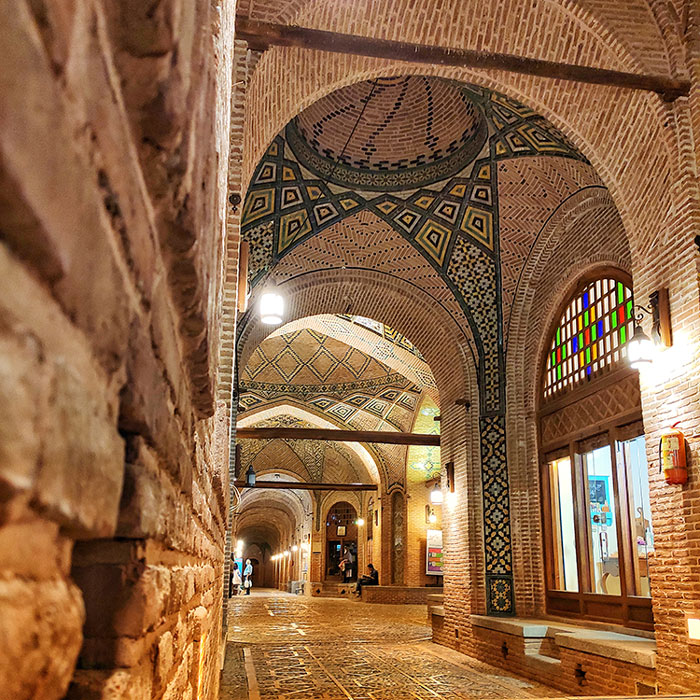
A historical complex in the heart of a historic city
The Sa'd al-Saltaneh caravanserai is located in the heart of Qazvin, near the old bazaar. Having a square plan of over 26,000 square meters, it is the largest Caravanserai in Iran which is built in the city, not along roads. Qazvin's most touristy landmark was renovated in 2012, and today local artisans have shops and workshops of their arts and handicrafts to represent to the visitors and tourists. Several cafes and bakeries provide a smooth and loving atmosphere in the courtyards and under the ancient vaults of Sa'd ol-Saltaneh.
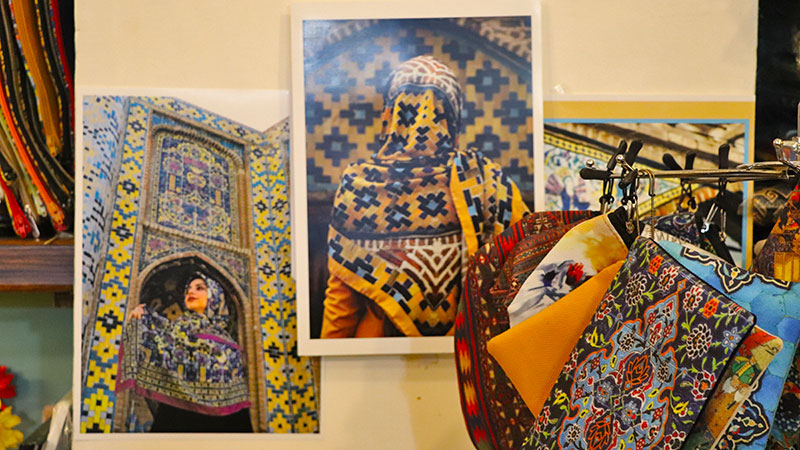
This beautiful historic site is one of the few caravanserais in Iran that has several baths, trading spaces, warehouses, intersections, mosques, teahouses, and long corridors. There are about 400 rooms and stores in this ancient bazaar and Caravanserai. This monument is like an architectural exhibition of the Qajar era. Using brick as the only main element, the intelligent architects created various enclosed and open spaces perfectly matched with the usages.
The main entrance of Saad ol-Saltanah Caravanserai is from Imam Khomeini Street. Passing through the massive port with four arches on both sides, a beautiful vestibule designed with bricks and colourful tiles leads you to the central courtyard and several smaller courtyards.
Around the square main courtyard, there are four Ivans decorated with delicate Moqarnas and distinctive geometrical patterns of bricks. On a one-meter high platform around the yard, hujrehs or rooms are located where travellers could lodge. The plaster adornment of these rooms is at the peak of beauty and fineness.
Behind the southern Ivan, there is the central axis, Gheysarieh with ample octagonal space in the middle. This octagonal space or Chaharsouq is an intersection with a magnificent dome and four smaller ones adjacent to it. Chaharsouq is the highlight of this historical place. The empty spaces on these high domes cast sunlight on the site. The inner surface of the domes is covered with fascinating tiled- Karbandi. Karbandi is a decorative and structural way of covering vaults with geometrical patterns like flora and birds figures in Islamic-Iranian architecture.
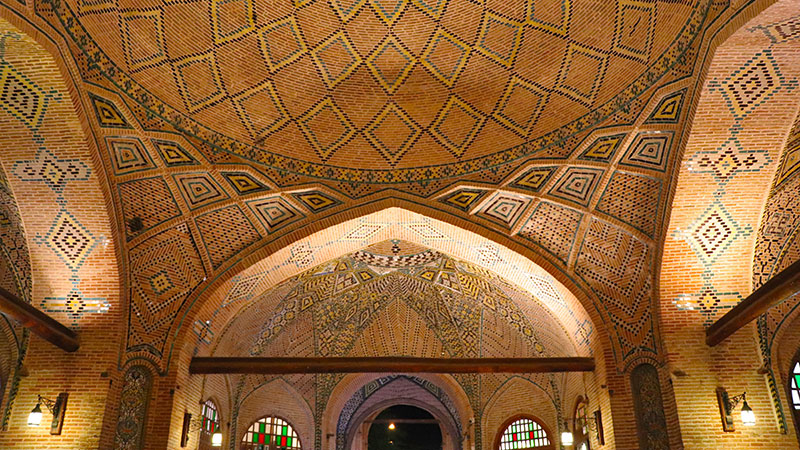
The north-south axis ends in two smaller courtyards; Negar-al Saltaneh on the east and Sa'dieh on the west of the Caravanserai. This complex is composed of nested and continuous spaces, walking through them give the real sense of walking through history.
From the main entrance through a long corridor on the opposite side, after passing the east entrance of Alnabi Mosque (Masjed ol-nabi), you will reach the ancient roofed bazaar named Vazir Bazaar. Like every old bazaar in Iran, this is a place to find indigenous heritages and enjoy the beating heart of the local life with inimitable colours and scents.
Experience Persian culture and culinary
This old inn was restored to be a major attraction of Qazvin. Rooms once housing tired merchants, now are the exhibition rooms for galleries, crafted wares, and restaurants. Just imagine tasting local dishes, like Gheymeh Nesar or having the tasty sweets and confections; Louz, Baklava and Kasmeh with a cup of tea in a coffee shop, then strolling in the calm and relaxed atmosphere of passages and hidden courtyards, buying magnificent carpets or ceramics designed with Persian calligraphy as gifts.
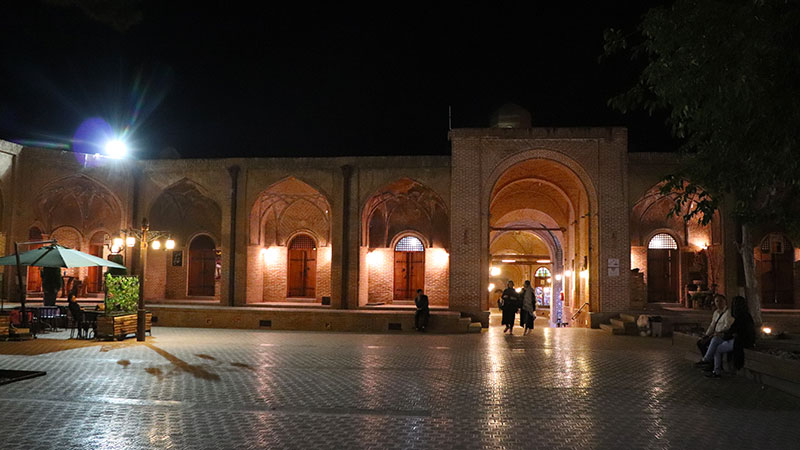
At night, the lighting on the walls enhances the glory of this 130-year-old building and amplify the tranquil ambience. Along with other historical monuments like Alamut Assassin Castle, Chehel Sotun- the royal Safavid palace, Cantor Church, Aminiha Hosseiniyeh and mansion which is a 200 years old building, visiting Saad al-Saltanah Caravanserai is a daydream experience in Qazvin city!
By Samaneh Zohrabi / TasteIran

